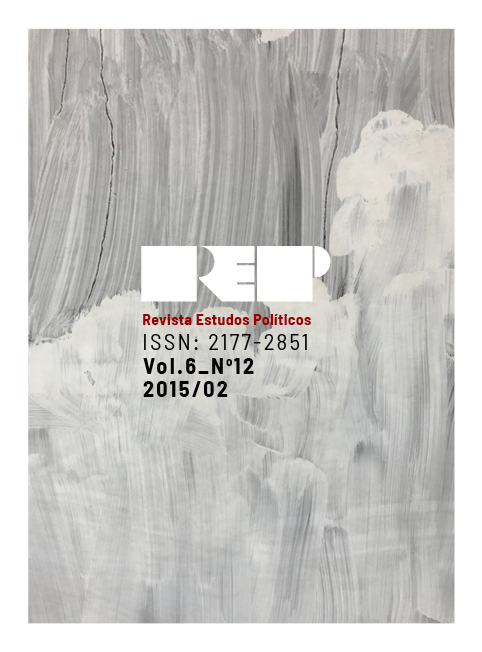A brazilian musician in New York: Pan-Americanism in the work of Heitor Villa-Lobos (1939-1945)
DOI:
https://doi.org/10.22409/rep.v6i12.40386Palavras-chave:
Villa-Lobos, Pan-Americanism, Music.Resumo
This article seeks to analyze the ways in which modernism and nationalism were embodied in the music of Heitor Villa Lobos (1887-1959) on the basis of a study of his exchanges with the musical culture of North America during the 1940s. His musical works and the way they became known in the United States, constituted a dynamic process which involved him entering into a continuous dialogue with other intellectuals – musicians, musicologists, journalists and other artists. Following his first journey to the United States and his involvement in the “networks of sociability” of that country, it was evident that as well as engaging in “social thinking about Brazil”, Villa-Lobos was drawn into an “intellectual culture”. This comprised a dynamic network and was expressed by sharing musical practices and holding conversations with musicologists which had political and social meanings. These are reflected in the way the historico-cultural significance of the works of Villa-Lobos was studied and the spread of his ideas in North-American and Brazilian periodicals.Downloads
Downloads
Publicado
Edição
Seção
Licença
Para submeter um manuscrito, os autores devem realizar o cadastro na plataforma, fornecer os dados solicitados e seguir as orientações recomendadas. Para tanto, será necessário apresentar o número da identidade de pesquisador. Para obtê-lo, é necessário realizar o cadastro na plataforma Open Researcher and Contributor ID (ORCID).
Ao submeter um manuscrito, os autores declaram sua propriedade intelectual sobre o texto e se comprometem com todas as práticas legais relativas à autoria. A submissão implica, ainda, na autorização plena, irrevogável e gratuita de sua publicação na REP, a qual se responsabiliza pela menção da autoria.
A REP tem acesso aberto e não cobra pelo acesso aos artigos.
Orientando-se pelo princípio de que tornar público e disponibilizar gratuitamente o conhecimento científico contribui para a democratização mundial do conhecimento, a REP adota a política de acesso livre e imediato ao seu conteúdo.
No mesmo sentido, a REP utiliza a licença CC-BY, Creative Commons, a qual autoriza que terceiros distribuam, remixem, adaptem e criem a partir do trabalho, inclusive para fins comerciais, desde que se reconheça e torne público o crédito da criação original.
Para mais informações, contatar a editora através do e-mail revistaestudospoliticos@gmail.com


